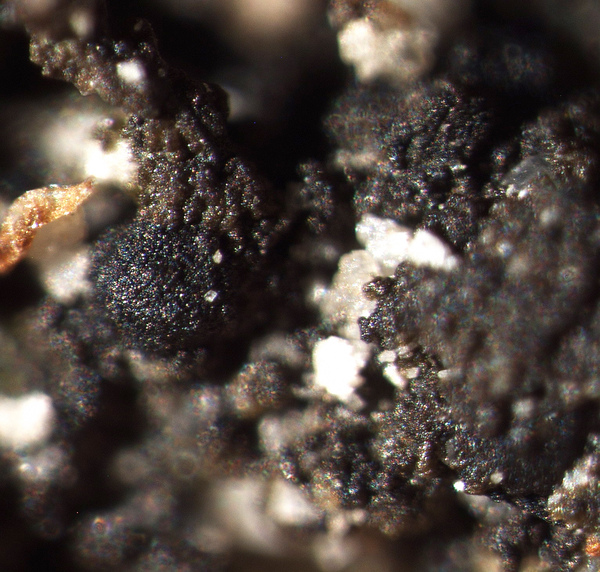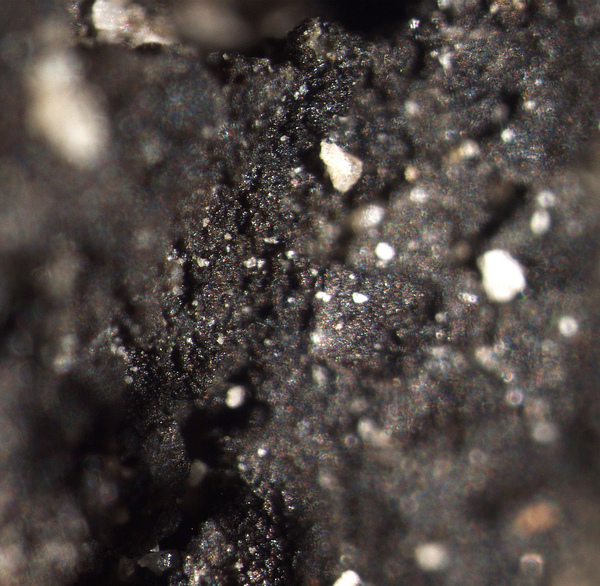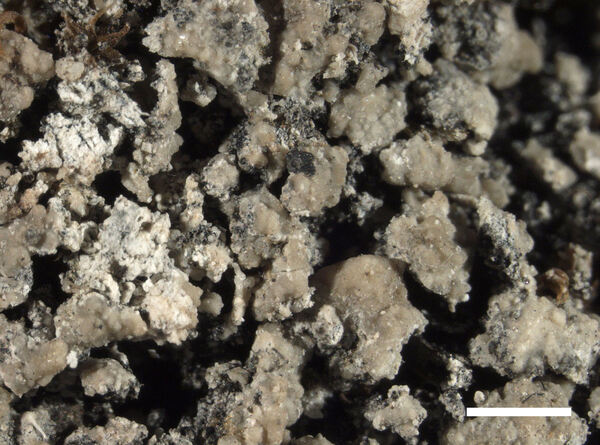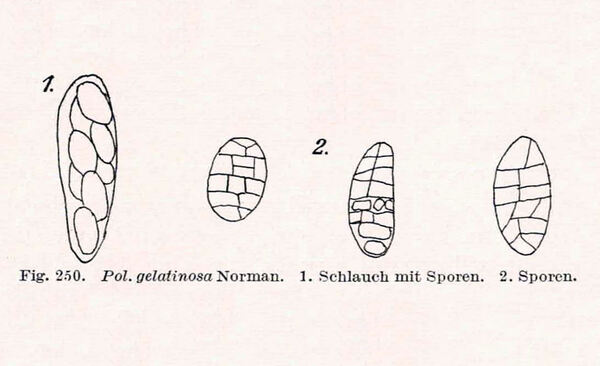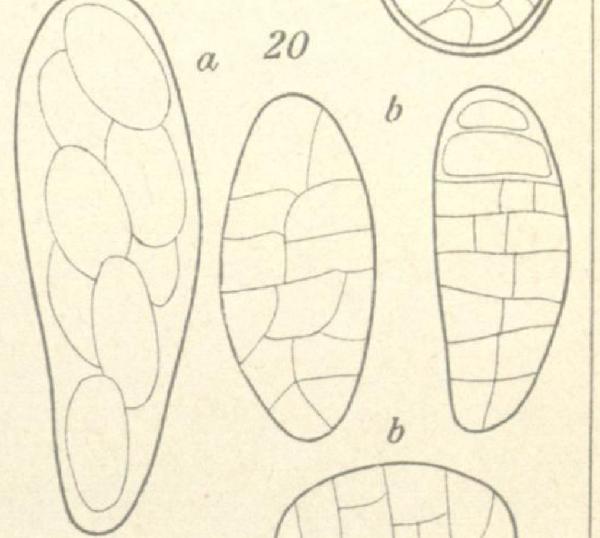Agonimia gelatinosa (Ach.) M. Brand & Diederich
in Sérusiaux & al., Lejeunia, 162: 6, 1999. Basionym: Verrucaria gelatinosa Ach. - Lichenogr. Univ.: 283, 1810.
Synonyms: Endocarpon gelatinosum (Ach.) Müll. Arg.; Polyblastia caliginosa Norman; Polyblastia gelatinosa (Ach.) Th. Fr.; Verrucaria nigrata Nyl.
Description: Thallus crustose, episubstratic, dark brown or almost black, slightly gelatinous when wet, delimited by a conspicuous dark prothallus, consisting of rounded (18-35 μm) or lobed (70-120 μm) goniocysts, without sterile globules, the surface cells brown, non-papillate. Perithecia black, smooth, matt, subglobose, 0.2-0.5 mm across, 1/4-1/2 immersed in thallus, developing on the substratum. Exciple 40-70 μm thick, pigmented in outer part, colourless and of compressed cells within; involucrellum absent; hymenial gel hemiamyloid: I+ red (I+ blue at low concentrations), K/I+ blue; hamathecium of periphyses and periphysoids, interascal filaments absent. Asci 8-spored, clavate, thin-walled, fissitunicate with a very thin exoascus, surrounded by a hemiamyloid gel. Ascospores muriform, with 15-32 cells visible in optical section, hyaline (rarely brownish when old), ellipsoid, 30-55(-60) x 15-20(-25) μm. Pycnidia rare, black, small, ovoid. Conidia bacilliform, 2-3 x 0.7-0.8 μm. Photobiont chlorococcoid. Spot tests: K-, C-, KC-, P-, UV-. Chemistry: without lichen substances.
Growth form: Crustose
Substrata: soil, terricolous mosses, and plant debris
Photobiont: green algae other than Trentepohlia
Reproductive strategy: mainly sexual
Commonnes-rarity: (info)
Alpine belt: extremely rare
Subalpine belt: very rare
Montane belt: extremely rare
Dry submediterranean belt: absent
Humid submediterranean belt: absent
Padanian area: absent
pH of the substrata:
1 2 3 4 5
Solar irradiation:
1 2 3 4 5
Aridity:
1 2 3 4 5
Eutrophication:
1 2 3 4 5
Poleotolerance:
0 1 2 3
Altitudinal distribution:
1 2 3 4 5 6
Rarity
absent
extremely rare
very rare
rare
rather rare
rather common
common
very common
extremely common
Loading data...
Occurrence data
Predictive map
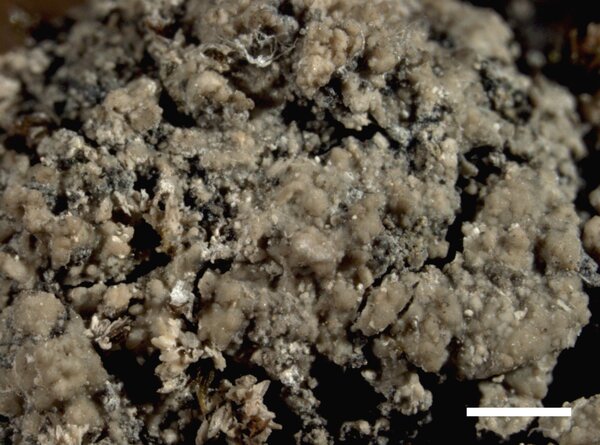
Elena Pittao; Owner: Derpartment of Life Sciences, University of Trieste CC BY-SA 4.0
Herbarium: TSB (36952)
02/02/2017
Growth form: Crustose
Substrata: soil, terricolous mosses, and plant debris
Photobiont: green algae other than Trentepohlia
Reproductive strategy: mainly sexual
Commonnes-rarity: (info)
Alpine belt: extremely rare
Subalpine belt: very rare
Montane belt: extremely rare
Dry submediterranean belt: absent
Humid submediterranean belt: absent
Padanian area: absent
pH of the substrata:
| 1 | 2 | 3 | 4 | 5 |
Solar irradiation:
| 1 | 2 | 3 | 4 | 5 |
Aridity:
| 1 | 2 | 3 | 4 | 5 |
Eutrophication:
| 1 | 2 | 3 | 4 | 5 |
Poleotolerance:
| 0 | 1 | 2 | 3 |
Altitudinal distribution:
| 1 | 2 | 3 | 4 | 5 | 6 |
Rarity
absent
extremely rare
very rare
rare
rather rare
rather common
common
very common
extremely common
Loading data...
Occurrence data
Predictive map



